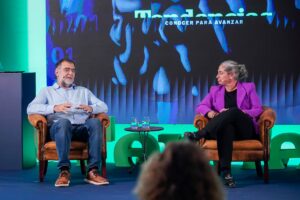
To study how future and young engineers envision their profession, the INSA group launched a study, the main lessons of which were revealed today. In total, more than 1,000 students and alumni were asked about their vision for the engineering profession.
Although until recently the engineering title still resembled a single model, the INSA group survey shows that today “professional identity is fragmented: the engineering title no longer refers to a single model but to a diversity of roles”. Six figures embody this new role. “The profile of the technical expert and manager is a fairly classic profile,” underlines Béatrice Decoop, the sociologist in charge of the INSA group survey.
The difference between aspirations and reality
However, others are not so. “Companies are looking for people capable of working in an agile mode, and the profile of engineers without hierarchy, who coordinate, is emerging. »
Next comes the change actor, driven by changes in society and business transformation, then the leader, an engineer who is “able to get the team on board,” added the woman who is also a consultant specializing in youth and the transition to adulthood and founder of So Youth. “Finally, the last profile is an office worker. »
These profiles emerge from what they experience or what they observe. Where did this mutation come from? “The transformation of companies, but also the expectations of engineers, the diversification of career paths, the plurality of training and specialization or even the internationalization of profiles”, lists Béatrice Decoop.
The consequence is a form of disappointment. Graduates “encounter hierarchical organizations that limit their impact, driving a gap between the “engineer as actor of change” narrative and the reality of everyday work,” the survey explains. Although 30% of respondents associate this profession with taking on the role of change agent, 20% of young engineers “perceive that their role does not provide sufficient autonomy and they occupy executive roles”.
Even worse, “31% of students and 28% of young workers find their mission uninteresting.” Enough to encourage them to abandon their internship or become disillusioned with their first job.
This may be reassuring, in spite of everything: “This finding is surprising, but it also shows that young people still consider work to be of primary value, both in terms of its usefulness for society and in terms of a good salary,” said Cécile Prévost, a sociologist of work and who led the project for the Gaston Berger Institute at the start of this survey. “This is not a form of disengagement in the workplace. This result weakens the discourse conveyed. »
“Young people are actors on their journey, therefore they are more demanding of what we offer them”
If they desire certain social benefits, engineering school students and working youth will engage in business if “the qualities of experience, learning and personal advancement” are present. Its focus: the goal of “accumulation of skills and networks, articulated with other areas of life and oriented towards meaning, autonomy and recognition. »
In fact, 43% of students feel motivated because companies offer young people the opportunity to get involved in projects with social impact. However, only a third of them maintain this motivation after starting a business. “A gap that expresses disappointment when entering work life or when one refocuses. »
Among female students, there is one criterion that is considered attractive: namely the diversity of management positions. Results to be reckoned with for Pascale Gilbert, XXX: “This study helps us understand the new relationship between young people and this profession and what is the driving force for companies and young people to find their way there. These are no longer top-down contracts but cooperative contracts, with young people becoming actors on their journey, and therefore more demanding of what we offer them. »
However, in facing demands, they did not remain silent. “They are very interested in being guided by older, more experienced people, which also reduces intergenerational differences,” adds Béatrice Decoop. Their professional goals? “Develop their capacities in employability and development of their skills », concluded Cécile Prévost.





